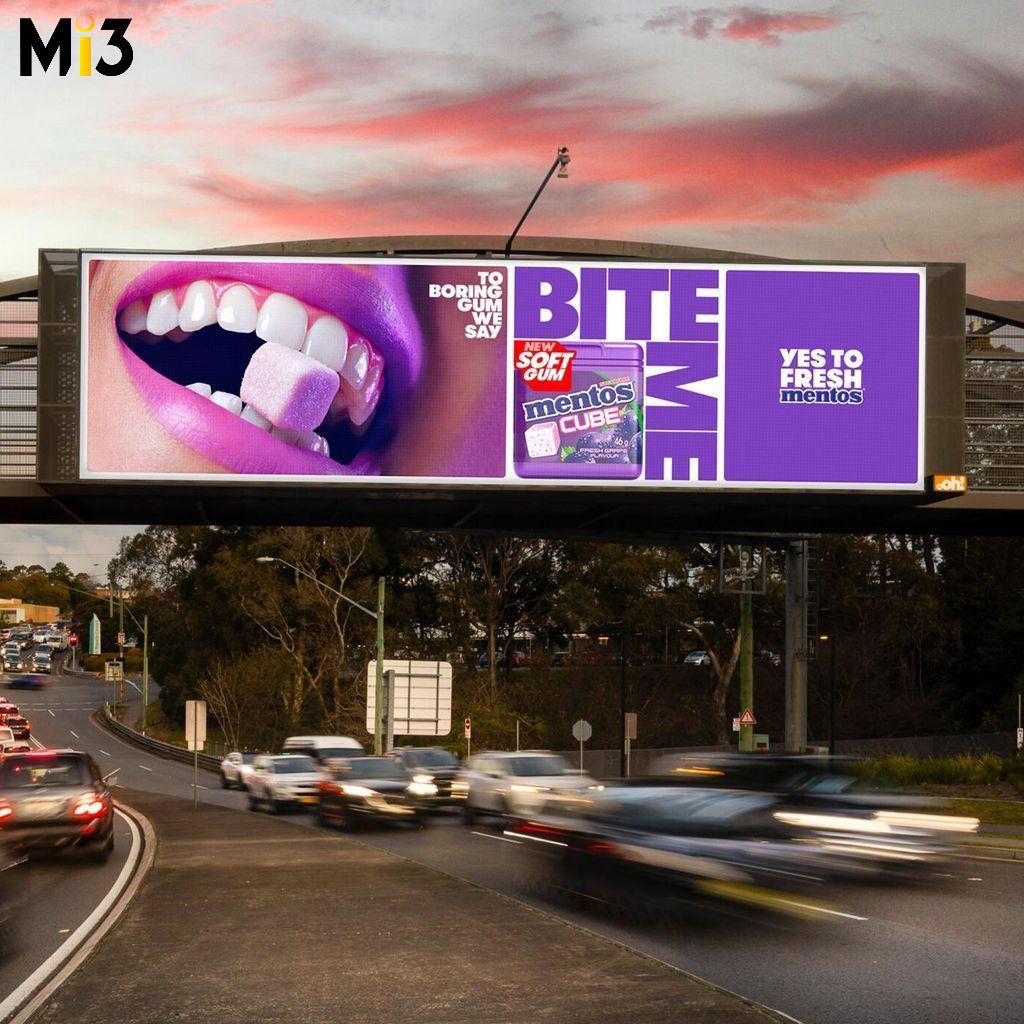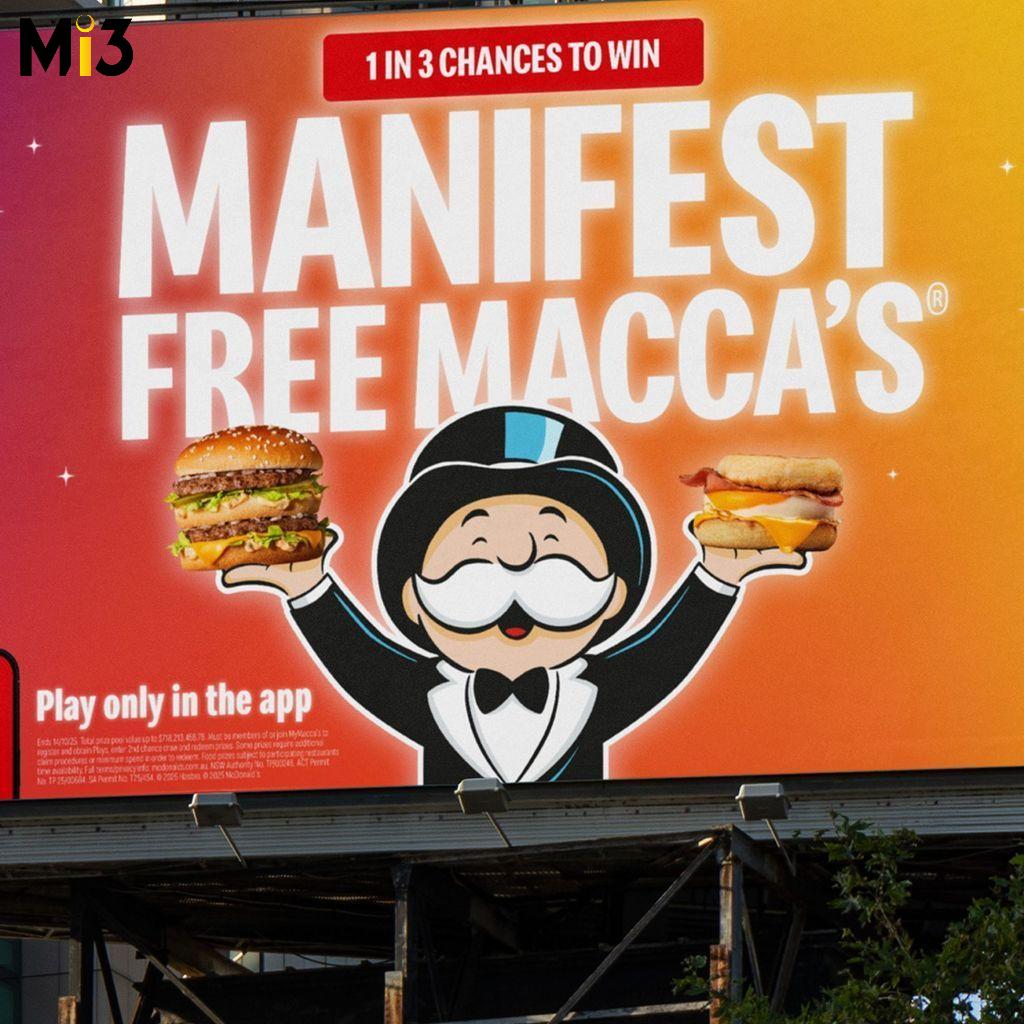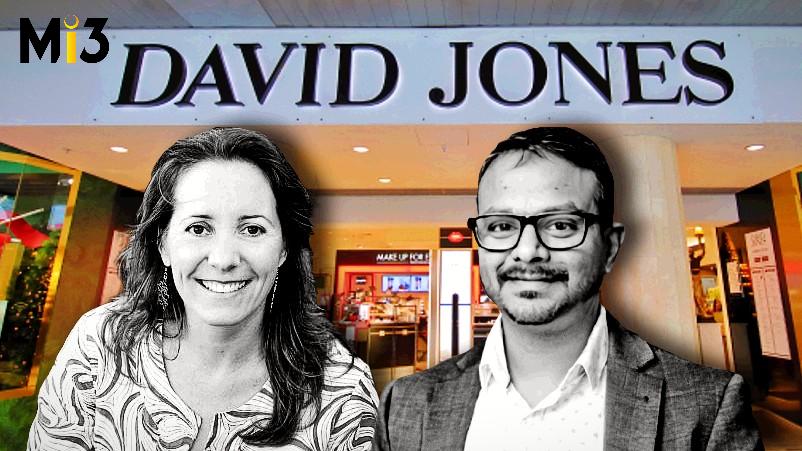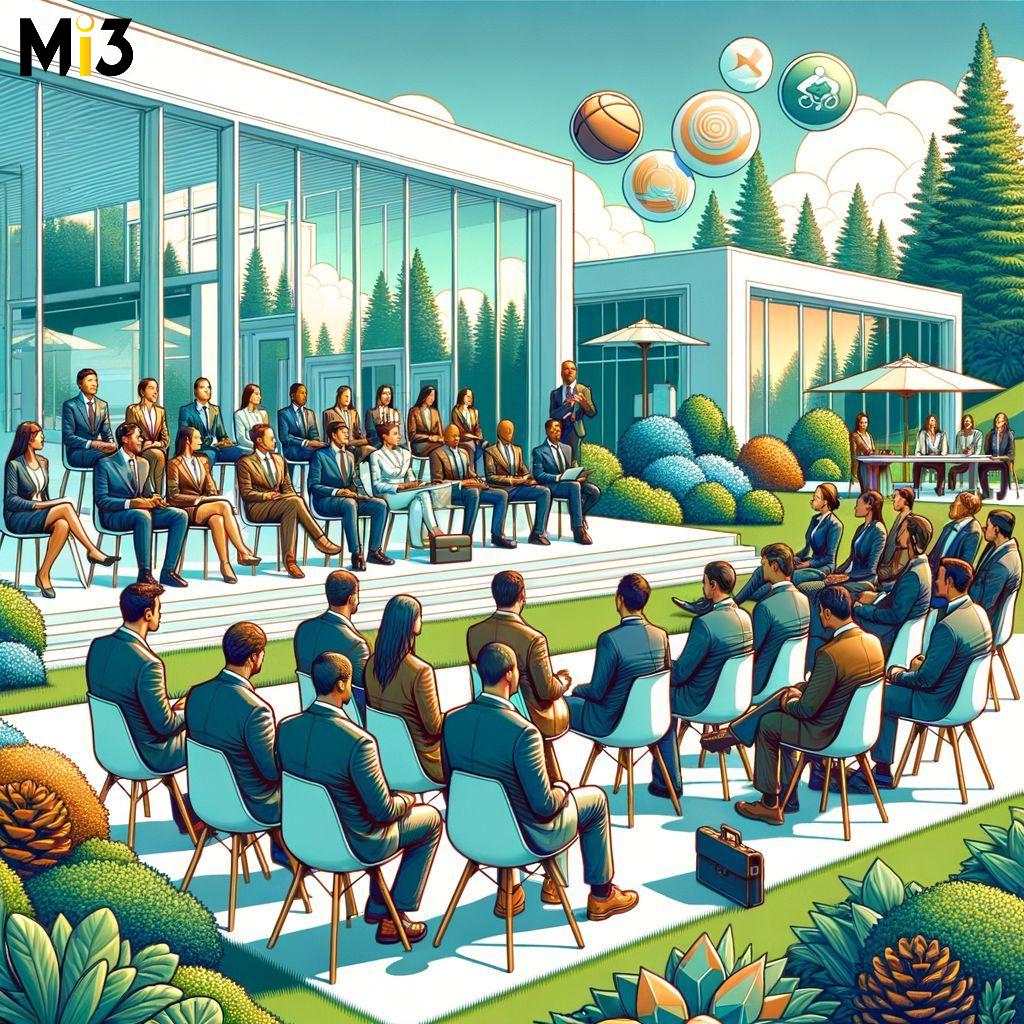Mentos Australia has introduced a new product, Mentos Cube, distinguished by its cube shape. The launch will be accompanied by a campaign titled ‘Mouth Off’, crafted by The Idea Shed.
Author: admin
Mortgage Choice launches ‘More’ campaign for Spring property season
Mortgage Choice has unveiled a new brand campaign and creative platform named ‘More’, timed to coincide with the peak spring property season. The campaign was developed in collaboration with Sydney-based creative agency, Brand+Story.
Monopoly returns to Macca’s with six-week promo campaign
Monopoly at Macca’s is set to make a comeback this September with a six-week promotion that promises a one in three chance of winning prizes and a guaranteed daily bonus win for eligible players.
Creative agencies gone by 2030? Brands and agencies working at the AI coalface: Gains, losses, watchouts from Specsavers, TBWA, Swinburne Uni, BetterBriefs
In one camp, we have those who view gen AI running end-to-end creative ideation and production as a derivative action, akin to trying to replace Michelangelo with machines. Yes, AI will do in the lower end of the funnel where the need for content is insatiable, and accelerated production processes are vital, they say. And it can help expedite the briefing process – or at least make you more succinct. But don’t bring it into strategy or emotive work, they cry. In the other camp: Tech platforms and AI agent-based solutions coming out of companies like research consultancy, Forethought, that claim to be producing creative work autonomously that’s testing as well as the top two or three campaigns brands have tested to date. Stuck somewhere in the middle are the curious marketers like those from Swinburne University and Specsavers. These CMOs are looking for data-driven effectiveness, better briefing processes, a way of feeling more confident about the investments they’re putting behind creative work and campaigns – but they also believe brand and human creative ingenuity remain vital in the mix. At Australia Post, meanwhile, the marketing team is using AI to transform operations, not replace creativity and has formed an internal AI council to keep pace with governance. Conversations about whether AI can, and should, be replacing humans throughout the creative supply chain is only in the early stages, and it’s already dividing the industry, as Mi3 discovers.
Subway, Zenith’s Team Fresh and Rival X launch gaming platform
Subway Australia has unveiled a new competitive gaming platform, the Subway Community Hub, coinciding with the return of its SubDog and the introduction of the new Loaded SubDog range. This initiative marks a strategic move by Subway to engage with the gaming community and expand its brand presence in digital spaces.
Australia Post’s AI approach shifts drudgery to discipline in creative production work, reinvests 30% efficiency dividend in agency relationship – but shifts incoming
If you’re looking for a revolution, look elsewhere. At Australia Post and creative production agency BRX, AI isn’t rewriting the rules of marketing; it’s finally enforcing them. The two organisations have embedded generative tools not to invent campaigns, but to systematise them. That means codifying brand guidelines, automating asset production, and auditing every prompt. At Aus Post, that’s led to bottom-of-funnel automation at scale and a 30 per cent efficiency dividend – and the firm, rather than cutting fees, is using those gains to do more.
NRMA Insurance expands partnership with Surfing Australia to boost grassroots and women’s surfing
NRMA Insurance has expanded its partnership with Surfing Australia to enhance support for grassroots and women’s surfing across the nation.
Anchorage Partners bets on data strategy to make outsized return from David Jones, rewrite M&A valuations
When Anchorage Capital bought David Jones in 2023 for circa 5 per cent paid by Woolworths Holdings less than a decade earlier, it was a $100m bet on customer data as much as flagship stores. The private equity firm’s thesis was simple but radical: get smarter, use the customer data trove to unlock buried value. That meant stripping back legacy systems and federating intelligence across the business. Two and a half years later, David Jones is on a path towards a business that looks more like a data platform with a luxury retail layer on top, though rooted in brand and curated customer experiences. If Anchorage’s bet pays off, the strategy could rewrite the playbook for how private equity values – and acquires and ultimately sells – old brands.
Woolworths Group to ‘intensify focus on fundamentals’ as lower prices leads to modest returns
Woolworths Group has reported a 1.7% increase in group sales but seen EBITDA and net profit drop in its full-year 2025 figures, a result its CEO Amanda Bardwell is calling ‘disappointing’.
Canva and Sportsbet creatives to fill final speaker spots for 2025 Evolution Summit
The In-House Agency Council (IHAC) has announced the final lineup of speakers for its 2025 Evolution Summit with in-house creatives from Canva, Sportsbet, and Time Under Tension all set to appear.










